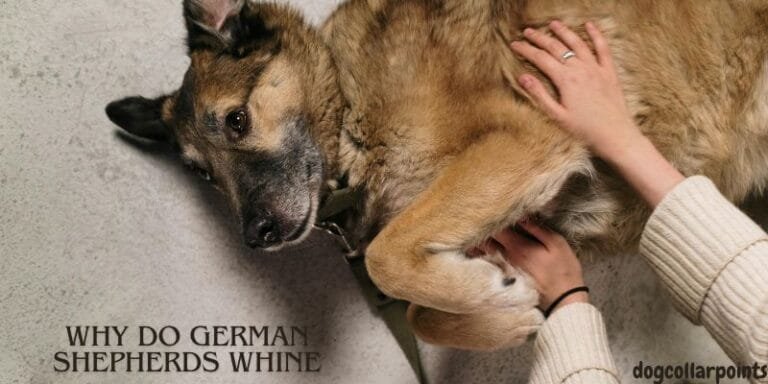Are Great Pyrenees Dogs Aggressive

Great Pyrenees, with their majestic white coats and steadfast demeanor, are among the most recognizable and beloved dog breeds, often associated with traits such as protectiveness and steadfast loyalty. However, a common question that arises among dog owners and enthusiasts is whether these gentle giants can turn aggressive, and if so, under what circumstances?
In this comprehensive post, we’ll bust myths, explore the breed’s temperament, and provide essential tips on preventing aggression in Great Pyrenees.
Great Pyrenees Temperament: What Makes Them Stand Out?
First and foremost, it’s important to establish that the Great Pyrenees, also known as the Pyrenean Mountain Dog, has a distinct, affable temperament. Historically bred to guard flocks on mountain slopes, this breed exhibits a strong protective instinct and a natural wariness of strangers. They’re typically gentle, patient, and affectionate with their families, especially with children. However, their role as natural protectors influences their behavior in various ways.
Family Guardians to the Core
Great Pyrenees dogs are fiercely loyal to their ‘flock,’ whether that’s actual sheep or their human family members. They’re most content when they have a job to do, and caring for their ‘sheep’ is often their primary focus. This innate protectiveness means they’ll act to defend their territory and loved ones if they perceive a threat.
Aloof but Not Aggressive
The Pyrenees’ tendency to be aloof with strangers is often misinterpreted as aggression. Yet, true to their demeanor, they prefer to keep a distance and ‘monitor’ the situation rather than engage in confrontations. It’s a fine line that discerning owners need to recognize and respect—it’s not aggressiveness, it’s vigilance.
Are Great Pyrenees Dangerous?
While the Great Pyrenees are known to be gentle giants, every dog, regardless of breed, has the potential to become dangerous under certain circumstances. The truth is that the Pyrenees’ size—males typically stand over 30 inches at the shoulder and weigh between 100 to 160 pounds—means their actions, both positive and negative, can have significant consequences.
Understand the Power of Their Presence
The sheer presence of a Great Pyrenees can be intimidating to those not familiar with the breed. This, combined with their quiet, watchful nature, sometimes takes on a menacing quality to those outside the family unit. But fear not, because understanding and training can help harness their protective instincts constructively.
When Fear Strikes
Aggression often stems from fear or a perceived threat. For instance, sudden movements or loud noises can startle a Pyrenees, triggering a defensive response. It’s crucial for owners to acclimate their dogs to various situations to prevent these fear-based behaviors from escalating.
What Can Make Great Pyrenees Aggressive?
Several factors can contribute to a Great Pyrenees displaying aggression, and it’s often a combination of genetics, environment, and upbringing that shapes a dog’s personality.
Genetics and Breeding History
The Great Pyrenees’ genetic makeup has been honed by centuries of selective breeding to be a reliable guardian—not a fighter. Still, this history has wired them to react to certain stimuli with heightened awareness and, occasionally, with aggression when they believe their ‘flock’ is threatened.
Environmental Triggers
A dog’s living environment heavily influences its behavior. A lack of socialization, inadequate training, or abusive experiences can all exacerbate a Pyrenees’s protective nature, leading to problematic aggression patterns.
Upbringing and training
The way a dog is raised and trained plays a significant role in its behavior. Consistent, positive reinforcement-based training that starts at a young age is critical for managing the potentially strong-willed Pyrenees.
How To Prevent Aggression In Great Pyrenees
Taking proactive measures and understanding your Great Pyrenees’s needs are essential in preventing aggression. These dogs, like any breed, thrive on clear communication, consistent training, and positive interactions.
Socialization from an Early Age
Exposing your Great Pyrenees to various people, animals, and environments from puppyhood is crucial. Early socialization helps them differentiate between genuine threats and everyday occurrences, limiting their potential for unnecessary aggression.
Obedience Training as a Tool for Balance
Training should not only be about following commands but should enforce the importance of calmness and control. A well-trained Pyrenees understands its role and boundaries within the family and society, which is key in avoiding misinterpreted signs of aggression.
Strengthening the Bond
Forming a strong bond with your Great Pyrenees is perhaps the most effective way to prevent aggression. Regular, positive interaction, a clear leader-dog relationship, and providing a purposeful life contribute to their mental well-being and a calm temperament.
Managing Guarding Behaviors
Great Pyrenees inherently guard. Appropriate management involves giving them a designated area to protect and teaching them acceptable and unacceptable behaviors within that role. This not only channels their natural instincts but also enables owners to direct and control their protective behaviors effectively.
Consistent Reassurance and Training
Consistency is key; regular training sessions and positive reinforcement go a long way in reassuring your Pyrenees that they are doing their job well without the need for excessive aggression. A confident, well-adjusted Pyrenees is far less likely to display aggressive tendencies.
Conclusion | Great Pyrenees Dogs Aggressive?
The Great Pyrenees breed is a testament to the complex interplay between genetics and environmental factors on animal behavior. While their protective instincts can sometimes be misinterpreted as aggression, in the right hands—through training, socialization, and a harmonious living environment—they are the epitome of a gentle and loyal companion.
By dispelling myths and understanding the often subtle cues that can lead to aggression, owners of Great Pyrenees can foster an environment of trust and respect, ensuring the breed’s long-standing reputation as a fantastic family pet and guardian remains intact.
Frequently Asked Questions (FAQs)
Is the Great Pyrenees a good family dog?
Absolutely! Great Pyrenees are known for their gentle and protective nature, making them great companions for families. They are loyal, affectionate, and can make excellent playmates for children.
What are the negative traits of Great Pyrenees?
Like any breed, there is potential for some negative traits to manifest in Great Pyrenees. These may include stubbornness, protective instincts that can be misinterpreted as aggression, and a tendency to bark or howl. However, with proper training and socialization, these traits can be managed effectively.
Why does my Great Pyrenees growl at me?
Growling is a form of communication for dogs, and it can have various meanings. In the case of Great Pyrenees, it could be a sign of protectiveness or discomfort. If your dog growls at you, it’s essential to observe their body language and consult with a professional trainer if needed.
Are Great Pyrenees difficult dogs?
Great Pyrenees are not necessarily difficult dogs, but they do require consistent training and socialization to thrive. As with any breed, they have their unique traits that need to be managed and understood by responsible owners. With proper care, they can make wonderful companions.






